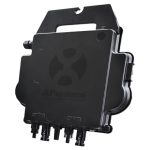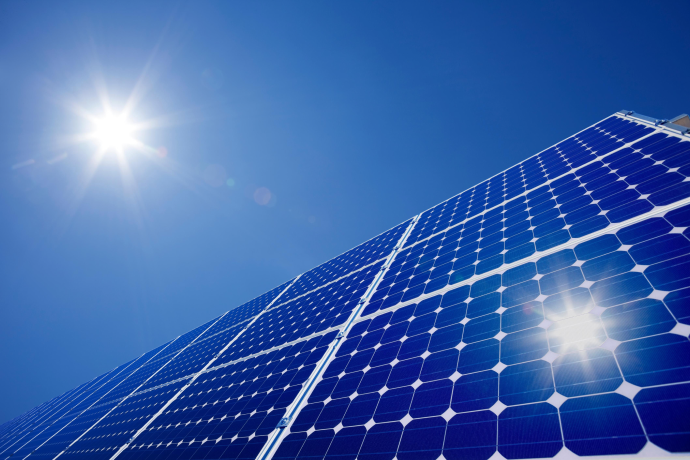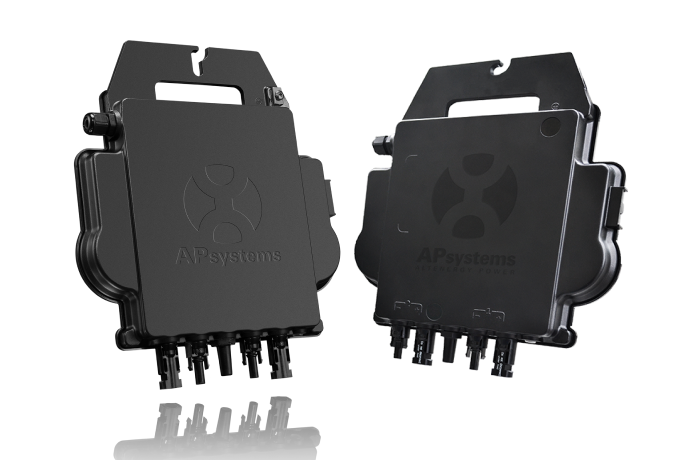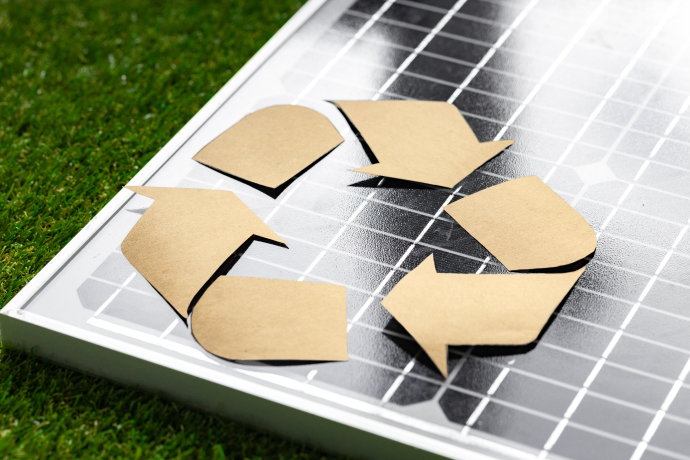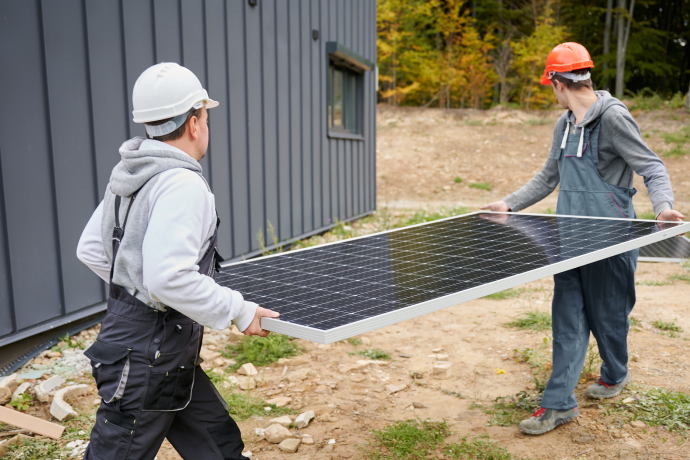When considering whether or not to install solar panels it is important to weigh up any disadvantages against the many advantages of solar energy. Solar panels are a significant investment and most people know the advantages such as energy efficiency, reduced bills, environmental benefits and increased home value. However there are some drawbacks like weather and sun dependency. To help you make an informed decision about solar panels and their suitability for your home or business, our article explains how solar energy works, advantages of solar energy, disadvantages and solutions to make the most of solar panel technology.
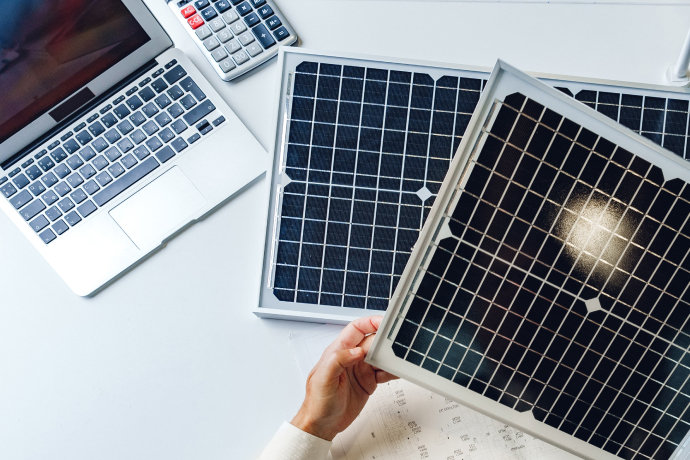
How Does Solar Energy Work?
In order to understand how there can be disadvantages of solar energy, we first need to understand how solar energy works.
The sunlight is a primary source of energy known as solar energy. When it shines down and comes into contact with the solar panels, it is converted into electricity. Initially this electricity is in the form of DC (direct current) power which cannot be used at home as most use AC (alternating current) power. The DC electricity is passed through an inverter which converts it to usable AC electricity.
For solar panels to work and produce electricity there needs to be a certain amount of sunlight. They do not need constant direct sunlight every day but do require approximately 4 to 5 hours of peak sunshine to operate efficiently. Solar panels can work with limited sunlight in situations where there is shade or cloud however the output will be reduced.
Advantages of Solar Energy
Before delving into the disadvantages, we will look at the advantages of solar energy to give a balanced perspective. Solar is a clean source of energy that can be harnessed in all areas of the world where there is sunlight. It is a truly renewable resource that does not pollute the environment and will never run out. Solar is becoming increasingly popular with rooftop solar supplying 12.8% of Australia’s electricity in the first half of 2025. The reason for the evolving interest in solar energy is the plethora of advantages including:
- Reduces electricity bills: Because solar panels use energy from the sun to generate electricity, there is less reliance on buying electricity from the grid, which drastically reduces power bills. In some cases, a solar system will completely eliminate electricity bills depending on the size, type of system installed, the home’s energy consumption and climate. Saving money on bills is the primary reason most people install solar panels.
- Great for the environment: As a clean, renewable energy source, solar is good for the environment as it reduces greenhouse emissions and air pollution compared to fossil fuels. Solar energy generates electricity from the sunlight which has no impact on the environment. Fossil fuels like oil, gas and coal are burned in power plants to produce electricity, releasing large amounts of carbon dioxide and other greenhouse gases into the environment.
- Government rebates and incentives: Small-scale certificates (STCs) are a government incentive that offers generous reductions in solar panel installations. When you install a solar system that is eligible for the incentive, STCs are created with a value that is redeemed at the point of sale on the cost of the solar system. Residents in Tasmania are eligible to receive STCs valued at $2,080 for a 6.6kW solar system (though these figures are subject to change).
- Increased property value: Solar panels can add between 4 and 7% to the value of a home. They are an attractive selling point like any home addition and buyers see solar as improving their lifestyle, saving them money and helping the environment.
- Low maintenance costs: Solar panel maintenance costs are low with panels only requiring routine maintenance once a year.

Disadvantages of Solar Energy
There are a myriad of benefits of solar energy but there are also some disadvantages which are important to know. Understanding potential limitations of solar energy will help you make an informed decision on whether solar panels are right for you. Disadvantages of solar energy are:
- Solar energy is not always available: Solar panels rely on sunlight to generate electricity and the sun is not always shining. In the night time, there is no sunlight at all, making electricity generation from solar panels impossible. Days with cloud cover, heavy rain or snow that impedes the sun from connecting to the solar panels result in decreased electricity production.
- Solar systems are expensive: Although the price of solar panels has decreased, they are still a substantial investment which tends to be a barrier for many homeowners. Despite the fact that solar panels generate substantial savings on electricity bills, the initial cost of installing solar panels is a deterrent.
- Solar panels require space: Most residential solar panels are installed on the roof which means they need a certain amount of space. Some roofs are not big enough to fit the number of solar panels required.
- Solar panels do not look good sometimes: Sometimes solar panels can be not aesthetically pleasing with a bulky appearance or disrupting the look of the roofline.
- Solar panels can deteriorate: Solar panels deteriorate over time which is a natural decline of the panel’s power output. Known as degradation, it is the percentage of annual power output lost. During this process the panels lose their ability to absorb as much sunlight to be converted into electricity.
Solutions for Solar Energy Disadvantages
While solar energy can have some disadvantages, there are ways to overcome them so that you get the most out of a solar system. Solutions for solar energy disadvantages include:
- Solar energy is not always available: If solar energy is not always available, there are a number of solutions. Installing a battery backup supplies electricity to the house when the sunshine is not available. Battery backups store energy collected by the solar panels for use when the sun is no longer shining. Tasmanian Safer Solar also specifically design solar solutions for weather productive systems
- Solar systems are expensive: The upfront cost of solar systems can seem expensive but there are a number of ways to keep the expenses down. Take advantage of the government rebates like STCs and feed-in tariffs. You can save thousands of dollars using these incentives. There are also green loans which are a type of personal loan and TSS financing options.
- Solar panels require space: Use higher quality solar panels if your space is limited or ground mounted other methods if you are worried about your roof space.
- Aesthetic appeal: If aesthetics is an issue, install them where they are least visible. Consider solar panel colour and type and choose panels that blend better with the roof. Work with solar installers that will take into account the balance of solar energy production with visual appeal.
- Solar panels can deteriorate: With a degradation rate of 0.5% each year, solar panel efficiency will be around 80 to 87% of the original capacity in 25 years. To make solar panels last longer, regular clean, inspection and maintenance.
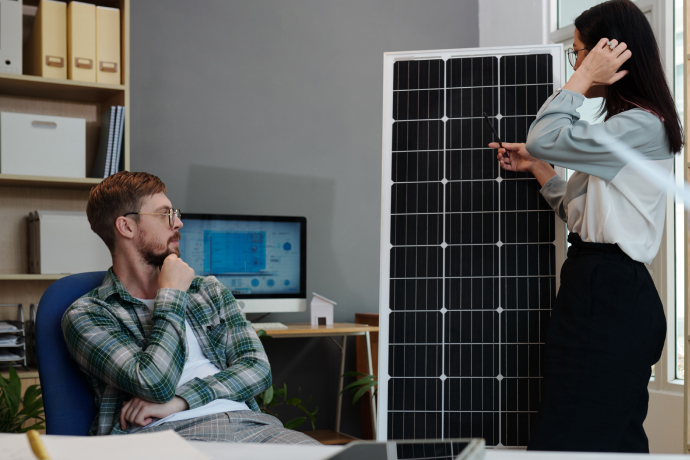
Why It Is Important to Know The Disadvantages of Solar Energy
Understanding the drawbacks of solar energy helps you make a decision on whether solar panels are worth it for you. Knowing the pros and cons of solar energy ensures you have realistic expectations of how a solar system can make a difference in your life. Reasons to know the disadvantages of solar energy are:
- Informed decision making: Awareness of solar energy disadvantages allows you to have a balanced assessment of the pros and cons of solar panels before committing to installation. You will have realistic expectations of solar system performance.
- Long term viability: Understanding issues like degradation will help to have a clear picture of solar panel long term viability. This helps determine your return on the initial investment.
- Potential savings: Awareness of potential disadvantages will give you a clear understanding of potential savings, both on the initial cost and long term savings.
- Addressing specific needs: Disadvantages like roof space issues or sunlight availability can help decide whether to have solar panels installed. If you do, these issues can be addressed immediately with solutions like battery backup or using high efficiency panels.
While there are some disadvantages of solar energy, they are outweighed by the long term benefits. Solar energy is one of the most effective ways to reduce energy consumption, reduce bills and help the environment. They reduce the carbon footprint and provide a truly renewable energy resource available all over the world. When you understand solar limitations, you can address the issues to ensure a solar system is the right choice for your home. Our article guides you through the disadvantages of solar energy as well as the advantages and offers ways to overcome any solar energy issues. For further information contact the team at Tasmanian Safer Solar. We are the experts in solar panels and solar installation and offer solutions for any of your solar needs.

